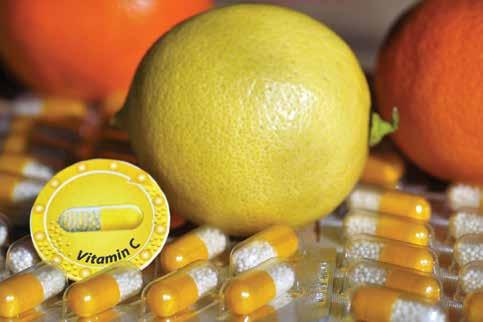
4 minute read
Immune System
During this time of the novel corona virus, the media and science has offered us many different explanations and theories of its origin, behavior, and transmission. But there is one word that keeps coming back into the forefront and that is immunity. What is your immune system and how does it work?
From Nih.gov (updated April 23, 2020)
Advertisement
How does the immune system work? The immune system has a vital role: It protects your body from harmful substances, germs and cell changes that could make you ill. It is made up of various organs, cells and proteins.
As long as your immune system is running smoothly, you don’t notice that it’s there. But if it stops working properly – because it’s weak or can’t fight particularly aggressive germs – you get ill. Germs that your body has never encountered before are also likely to make you ill. Some germs will only make you ill the first time you come into contact with them. These include childhood diseases like chickenpox.
The tasks of the immune system Without an immune system, we would have no way to fight harmful things that enter our body from the outside or harmful changes that occur inside our body. The main tasks of the body’s immune system are
to fight disease-causing germs (pathogens) like bacteria, viruses, parasites or fungi, and to remove them from the body
to recognize and neutralize harmful substances from the environment
to fight disease-causing changes in the body, such as cancer cells
How is the immune system activated? The immune system can be activated by a lot of different things that the body doesn’t recognize as its own. These are called antigens. Examples of antigens include the proteins on the surfaces of bacteria, fungi and viruses. When these antigens attach to special receptors on the immune cells (immune system cells), a whole series of processes are triggered in the body. Once the body has come into contact with a disease-causing germ for the first time, it usually stores information about the germ and how to fight it. Then, if it comes into contact with the germ again, it recognizes the germ straight away and can start fighting it faster.
The body’s own cells have proteins on their surface, too. But those proteins don’t usually trigger the immune system to fight the cells. Sometimes the immune system mistakenly thinks that the body’s own cells are foreign cells. It then attacks healthy, harmless cells in the body. This is known as an autoimmune response.
Helpful ways to strengthen your immune system and fight off disease Source: health.harvard.edu Updated: April 6, 2020
How can you improve your immune system? On the whole, your immune system does a remarkable job of defending you against disease-causing microorganisms. But sometimes it fails: A germ invades successfully and makes you sick. Is it possible to intervene in this process and boost your immune system? What if you

improve your diet? Take certain vitamins or herbal preparations? Make other lifestyle changes in the hope of producing a near-perfect immune response?
What can you do to boost your immune system? The idea ofboosting your immunityis enticing, but the ability to do so has proved elusive for several reasons. The immune system is precisely that — a system, not a single entity. To function well, it requires balance and harmony. But that doesn›t mean the effects of lifestyle on the immune system aren›t intriguing and shouldn›t be studied. Researchers are exploring the effects of diet, exercise, age, psychological stress, and other factors on the immune response, both in animals and in humans. In the meantime, general healthy-living strategies are a good way to start giving your immune system the upper hand.
Healthy ways to strengthen your immune system Your first line of defense is tochoose a healthy lifestyle. Following general goodhealth guidelines is the single best step you can take toward naturally keeping your immune system strong and healthy. Every part of your body, including your immune system, functions better when protected from environmental assaults and bolstered by healthy-living strategies such as these:
Don’t smoke.
Eat a diet high in fruits and vegetables.
Exercise regularly.
Maintain a healthy weight.
If you drink alcohol, drink only in moderation.
Get adequate sleep.
Take steps to avoid infection, such as washing your hands frequently and cooking meats thoroughly.
Try to minimize stress.
Diet and Aging
As we age, our immune response capability becomes reduced, which in turn contributes to more infections. While some people age healthily, the conclusion of many studies is that, compared with younger people, the elderly are more likely to contract infectious diseases and, even more importantly, more likely to die from them. Respiratory infections,influenza, theCOVID-19 virusand particularly pneumonia are often more severe in people over 65.
Like any fighting force, the immune system army marches on its stomach. Healthy immune system warriors need good, regular nourishment. If you suspect your diet is not providing you with all your micronutrient needs taking a daily multivitamin and mineral supplement may bring other health benefits beyond those effects on the immune system.
Truly, the immune system is a finely tuned body function and we should try to do all we can to keep it running smoothly.








